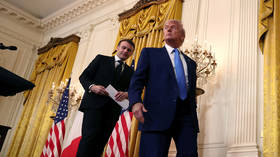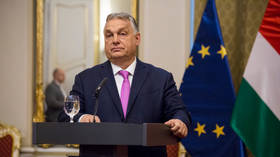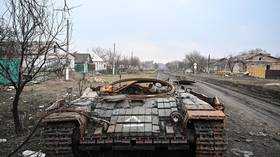Fighting a losing battle: UFC's stubbornness in the face of coronavirus is both futile and dangerous

While some fight fans are hailing the UFC for refusing to bow to the ongoing – and escalating – coronavirus crisis, questions must be asked why the organization is refusing to follow the lead of other sports leagues.
Ever since brothers Lorenzo and Frank Fertitta bought the UFC and put lifelong friend Dana White in charge, the organization has fought and built its name in the face of resistance.
The sport was banned across much of the United States, and was barred from pay-per-view television, yet White and the Fertittas managed to perform miracles to build up a serviceable business. Then, with the Fertittas' last roll of the financial dice, they hit paydirt with The Ultimate Fighter. The rest, as they say, is history, as the Fertittas' initial $2 million purchase turned into a $4 billion sale.
But despite the UFC's status as a big-time sports league, with a lucrative TV deal with ESPN and a global audience of millions, there is still the air of a promotion looking to pick a fight with the world, and that "us against the world" sentiment is evident today as the UFC plows a lone furrow as virtually the only major sports organization to persist – or try to persist – with its event schedule, regardless of the health issues at play.
Also on rt.com UFC versus coronavirus: While other sports shut down over health fears, Dana White stubbornly vows, 'We're not stopping' (VIDEO)The global pandemic has seen the NBA, NHL, English Premier League, UEFA Champions League, Major League Soccer, a host of top European soccer leagues, a host of Olympic qualification tournaments, NCAA's March Madness, Formula 1 and MotoGP to all postpone key events in the wake of the crisis.
The sport of MMA, however, has largely attempted to keep going.
Asia's top martial arts promotion, ONE Championship, has put together a re-jigged schedule, featuring a host of behind-closed-doors shows in Singapore, while the UFC's closest rivals Stateside, Bellator MMA, recently postponed last Friday's Bellator 241 event on the day of the show amid increased coronavirus fears after initially moving the event behind closed doors.
The UFC, however, has looked to keep things rolling, with UFC president White stating defiantly, "Unless there's a total shutdown of the country where people can't leave their houses and things like that, these fights will happen."
An event in Brazil on Saturday night went ahead in an empty arena in Brasilia, and even though their next event, set for London next weekend, has been postponed, the UFC are still scrambling in a bid to keep the main event fight alive, with managers receiving messages from the UFC to see if they have fighters prepared to step in on short notice to form an undercard at a location still to be determined.
Also on rt.com 'Total shutdown': European football authorities braced for impact of complete cancellation of football until September – reportBut the sport of MMA offers additional risk not only to the athletes involved – who are well used to dealing with high risks in one of the world's toughest sports – but to those around them.
MMA arguably involves the most "contact" of all contact sports, due to the nature of the competition. And the international reach of the sport is such that fighters compete from all over the world.
Throw in the fact that the World Health Organization states the incubation period of coronavirus can range from anything from 1 to 14 days, and it's entirely possible that fighters can arrive for fight week with a clean bill of health, get all the way to fight night, and beyond, completely free of symptoms, yet still be carrying, and passing on, the highly contagious virus, for which there is still no cure.
Across the globe, governments are advising caution, with varying degrees of isolation advice being given for people exhibiting symptoms that match those recognized in confirmed coronavirus cases.
Yet, while the overwhelming majority of sports are shutting up shop and looking to ride out the storm with the minimum of exposure to illness, the UFC seems hell-bent on continuing, regardless.
To those not directly involved in the sport, it seems both irresponsible and dangerous. But to those at the heart of it, it's a direction that is being applauded. Fighters are being given the chance to still earn much-needed money to feed their families. Managers are hailing the promotion for continuing to provide those opportunities for their clients.
And hardcore fans who are more concerned with watching their favorite sport than they are ensuring the health of themselves and those around them are shouting "hell yeah!" at their screens whenever they see White declaring, "these fights WILL happen."
Also on rt.com COVID19 & cash: The financial implications of the coronovirus pandemic on sportHowever, despite all of the bluster and bombast from the UFC, their efforts will all be for naught if the regions in which they try to host shows shut things down. It's happened in New York, where the biggest UFC fight of the year – Khabib Nurmagomedov vs. Tony Ferguson – is a virtual certainty to be relocated, while scheduled events in Columbus, Ohio and Portland, Oregon are both set to be moved after state government banned public gatherings in both regions.
It's a throwback to the early days of the UFC, as the original owners scoured the United States for cities and venues that didn't ban the sport of MMA to host their shows. Only this time, the sport wasn't fighting against a stigma, it's fighting against a pandemic.
Like that stigma, the pandemic will run its course, and the UFC's big super-shows will return once again. But now, with the health of so many people at stake, persisting in hosting shows seems to be beneficial only to those with a financial interest in the events themselves.
The desire to fight through and carry on in the face of adversity may be an admirable quality in most cases, but in this one, it's misguided, dangerous and futile.
As many seasoned competitors will tell you, sometimes the best option is to tap out and fight another day. You might lose the fight, but you could actually save your career.
In this case, the stakes are much, much higher. Tapping out and suspending events might lose the UFC a few (million) bucks, but they could actually save lives.
Is there really a choice to make?
Also on rt.com Relocation? Behind closed doors? Exploring UFC's options for Khabib v Ferguson should New York fight be canceled














